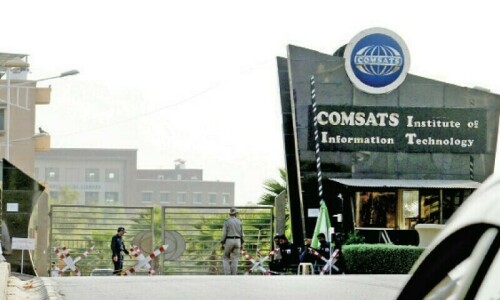‘I read Aag Ka Darya in prison’

Q: What are you currently reading?
A: I read more than one book at a time. These days I’m reading some Pashto books – a biography of one of the ideologues of our movement in the 20th century, Fazal Mahmood Makhfi, and I am also reading Will Durant’s Story of Civilisation.
Will Durant is one of the classic writers on philosophy, history and social history. History of Civilisation is about the evolution of human society. Obviously, it has taken humanity millions of years to evolve and of that, there are records from thousands of years, of food gathering, seeking shelter and the interaction, or clash, between nature and human history.
These are details people are still digging into, and there is still a lot to be done. There are blank pages in the evolution of human society, before people recorded things, but people are trying. Durant is one of the big names, he has made a big contribution.
Another one of his books, Story of Philosophy, is very interesting. It is not very thick, but it gives you the gist of the history of philosophy.
I have also gotten some new books of Pashto poetry; an anthology by a young poet which has a very interesting name: La Kalam. ‘La’ in Arabic means ‘no’, and ‘kalam’ means expression.
Q: Are there any books or authors you find yourself returning to?
A: Thomas Hardy is one of my favourite novelists. I do go back to his novels, which I studied as a student in the early 1970s – The Return of the Native, Mayor of Casterbridge, Tess of the D’urbervilles.
Classics are full of meaning – you can discover new meanings in them. Shakespeare’s plays, or for that matter the Ferdowsi Shahnama or Rumi’s Masnavi is also one of my favourites. Rumi was actually born in Balkh, in Afghanistan, and Afghans insist on calling him Jalaluddin Balkhi. When he went to Turkey, he settled in Konya, and he was called Rumi after that.
I haven’t seen a novel I didn’t enjoy. The Russian classics, such as Dostoevsky, Tolstoy, Gogol – I always enjoy them and go back to them. I re-read some of the books I read two decades ago, and I discover new pleasure in them when I go back to them.
Literature, particularly fiction, is of course not real in the sense that it is not history, it is not narrating real events, but [fiction writers] are gifted people. They studied human society so deeply that they are able to recreate it in their own imagination, and that is really very fascinating.
Q: Are there any books or characters that have remained with you?
A: There are books I really can’t forget. For example, I lived in Kabul in the 1980s, in political exile, for eight and a half years. There is a very good book about Afghanistan,Caravans by James A. Michener. Michener was a great American novelist, and he would research the sociology, history and culture of a place very thoroughly, and then fictionalise it. It is fiction, but really sort of a replica of reality. He wrote Caravans in 1963, and whenever I open it, it recreates the scene of Kabul like a live painting.
Similarly, there was an English author, M.M. Kaye, who wrote The Far Pavilions. Her grandfather had served in the British military in our area, and she recaptured those years. She described this road between Mardan and Nowshera – I travelled to see that road. I had been there before, but the way she described that road was fascinating.
Q: Is there a great Pakistani novel?
A: Aag Ka Darya – of course, it is both Pakistani and Indian because Qurratulain Hyder had come here but she also went back, but I really believe it is the greatest Urdu novel. I spent years in prison, for political reasons, which helped me develop my reading habit. I read Aag Ka Darya in the Peshawar prison in 1974, it was in the prison library, and I have read it again and again. It is like the cultural history of the last 3,000 years, and the method she has used is unique.
Abdullah Hussain’s Udaas Naslein is another masterpiece in Urdu, and I think it is a milestone in postcolonial literature.
Published in Dawn, February 15th, 2017













































